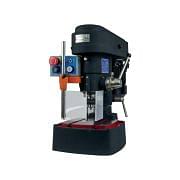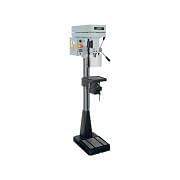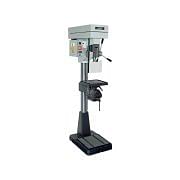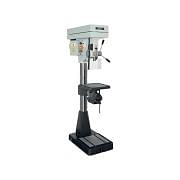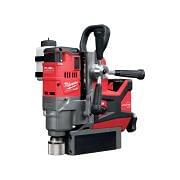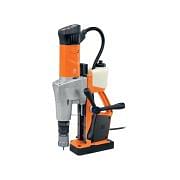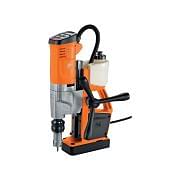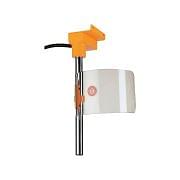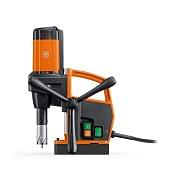Column and bench drills
At the heart of every mechanic's workshop, drill presses occupy a prominent place due to their precision and versatility. But what exactly are drill presses and why are they so indispensable? In this article, we will explore the features, usefulness and advantages of these essential tools, without forgetting to answer some of the most frequently asked questions.
Pedestal drills, also known as fixed-mounted drills, are machine tools designed to drill materials with high precision. They are mounted on a vertical column that ensures stability and perfect alignment during the drilling operation. This configuration allows perfectly perpendicular holes, an essential requirement in many machining operations.
These tools are used in a wide range of applications in machine shops:
- Precision Drilling: Ideal for drilling with great accuracy, pillar drills are perfect for creating exact holes in mechanical components.
- Metal and Woodworking: Suitable for a variety of materials, column drills can be used on both metal and wood, making them extremely versatile.
- Threading: Some advanced models also allow threading operations, further extending their usefulness.
Using a drill press requires care and precision:
- Material Preparation: Securely clamp the workpiece on the workbench using vices or clamps.
- Bit Selection: Choose the appropriate bit according to the material to be drilled and the desired diameter.
- Setting the Speed: Adjust the spindle speed according to the material and drill diameter.
- Drilling: Slowly lower the spindle until it touches the surface of the workpiece, applying constant pressure.
The use of drill presses in machine shops offers numerous advantages, including:
- High accuracy: The rigid and stable design ensures perfectly perpendicular holes with millimetre precision.
- Versatility: These drills are suitable for a wide range of materials and applications, from simple drilling to complex threading.
- Efficiency: The ability to adjust speed and drilling depth allows you to optimise machining time and improve productivity.
Answers to Frequently Asked Questions
What is the difference between a drill press and a hand drill?
Column drills offer much greater precision and stability than hand drills, making them ideal for machining operations that require exact and uniform holes.
How do you maintain drill presses?
Regular maintenance includes lubricating moving parts, cleaning work surfaces and checking spindle alignment. It is also important to check the wear of belts and bearings to ensure proper functioning.
In conclusion, pillar drills are an essential investment for any machine shop that strives for precision and quality machining. Thanks to their robustness, versatility and precision, these tools are indispensable for achieving professional results and optimising production processes.

